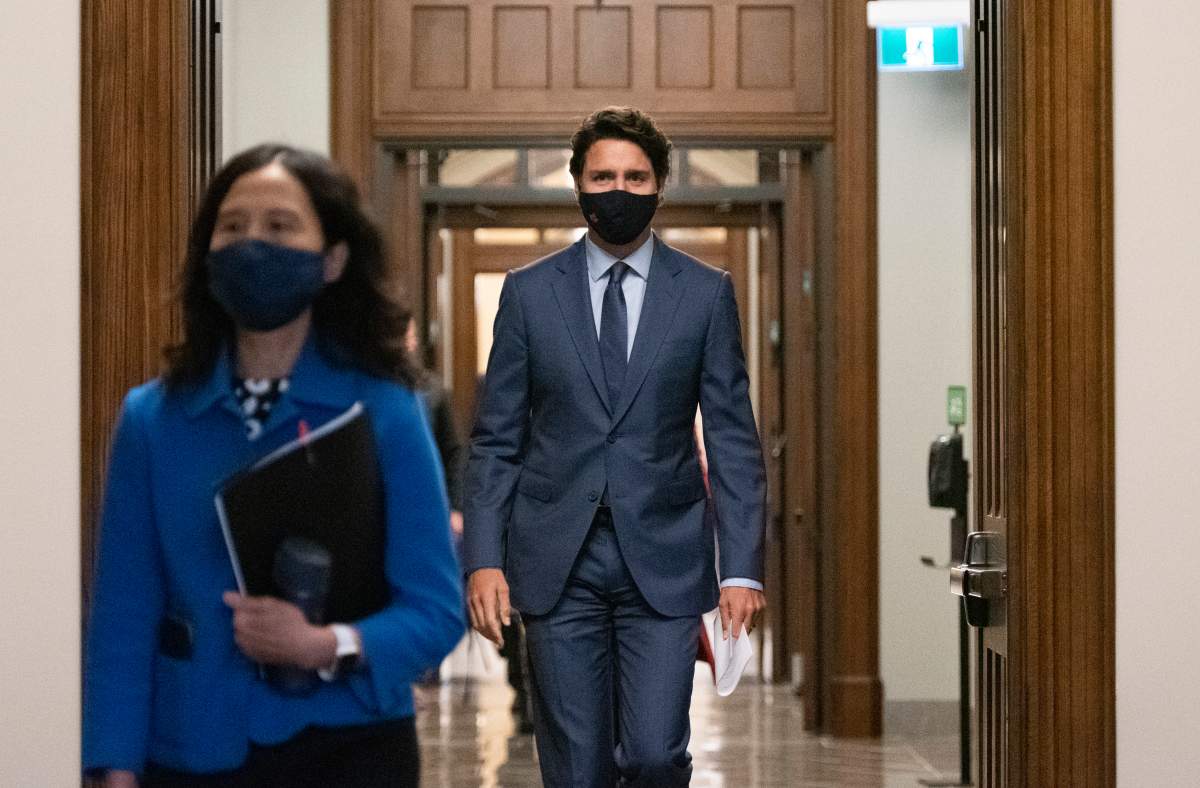The Liberal government is asking Parliament to fast-track its latest COVID-19 economic recovery package.

Government House leader Pablo Rodriguez proposed Monday to limit debate on the bill which establishes more flexibility to qualify for employment insurance.
It would also set up three new benefits for Canadians who won’t qualify for EI but are still impacted by the economic crisis generated by COVID-19.
The Liberals secured NDP support for the legislation last week by increasing the amount of those benefits to $500, from $400.
That includes a Canada Recovery Benefit for self-employed and gig workers who still won’t qualify for EI, as well as sick leave and caregiver benefits for workers who have to stay home because they or someone they care for have to stay home temporarily because of COVID-19.
The $500 a week will equal what was paid out under the Canada Emergency Response Benefit, which the Liberals introduced last spring as millions of Canadians lost their jobs because of the COVID-19 shutdowns.
Because CERB expired over the weekend, the new bill will need to pass quickly in order for Canadians to begin applying for the new benefits. Applications for the recovery benefit are to open Oct. 11 and, for the other two benefits, on Oct. 4.
Rodriguez said Canadians are watching to see if political parties will work together to pass the aid package quickly.

“Canadians need our help now and this is exactly what the motion is attempting to accomplish,” he said Monday. “Quick action.”

Get breaking National news
The motion seeks approval to limit debate on the bill that could see it passed by the end of the day if the other parties agree.
It comes as the House resumed Monday morning for the first full week of operations for the pandemic Parliament, and as COVID-19 cases continue to surge in the country’s two biggest provinces.
Debate on the government’s throne speech will also continue this week, with speeches expected by both Bloc Quebecois Leader Yves-Francois Blanchet and Conservative Leader Erin O’Toole, both of whom have been quarantined after testing positive for COVID-19.
Blanchet was out of his quarantine on Monday, speaking publicly about the Bloc’s proposals for an economic recovery plan.
O’Toole’s response to the speech from the throne will be his first statement in the Commons since becoming party leader just over a month ago.
O’Toole used his victory speech as new Conservative leader last month to focus on how he’d expand the so-called “big blue tent” and make the party relevant beyond its base.
His throne speech reply will recast that approach as a pitch to the country as a whole.
Yet while his first comments in the House of Commons as Tory leader will be important, grand speeches delivered on the floor of the Commons matter less in the digital era, suggested Ginny Roth of Crestview Strategies.

Even as O’Toole was stuck in his basement, the party was pushing out video clips in a bid to introduce him more broadly to the country.
One was about his mother’s death when he was a child and the pivotal role his hockey coach played in helping him through that time. Another, his message on Labour Day, saw O’Toole make an unusual conservative pitch directly to workers _ political turf more traditionally home to the NDP or Liberals.
With people online far more often these days due to the pandemic, direct content can have far more impact than a single speech, Roth said, as being a strong performer in Parliament doesn’t necessarily translate to votes in a general election.
“His biggest challenge is his name recognition, people just don’t know who he is,” Roth said. “He’s using the format that works the best for people and seems to access people the most right now: online video content.”

O’Toole’s remarks in the Commons will draw on his experiences waiting to be tested for _ and ultimately diagnosed with _ COVID-19. But he’ll also use the opportunity to set a tone for how he’ll seek to lead the official Opposition in the coming months and win the country in the eventual next election.
“We’re going to oppose, and we’re going to challenge and hold the government to account,” O’Toole said in an interview last week with The Canadian Press. “But we’re also going to offer some contrasting vision.”
O’Toole’s Tories came out fast against the throne speech last week, arguing it didn’t go far enough to offer support to Canadians impacted by the pandemic. The Bloc Quebecois said absent a federal government plan to transfer billions more for health care to the provinces, they aren’t sure they can support it either.
But the NDP have now said that if their demands for a stronger COVID-19 safety net are in the new relief bill before the Commons this week, they will likely support the speech from the throne.








Comments